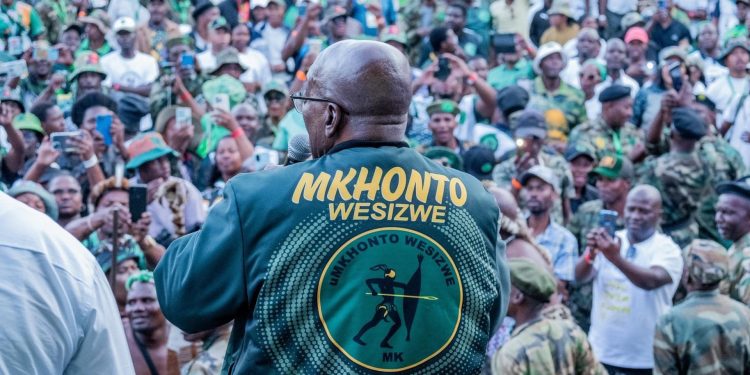In recent weeks, the campaign of hostility against former President Jacob Zuma has intensified, sparking widespread concern. Many believe this surge in attacks to be an orchestrated smear campaign, with Economic Freedom Fighters (EFF) leader Julius Malema at the center of the controversy. Critics argue that Malema’s actions go beyond opposition to Zuma and the Umkhonto we Sizwe Military Veterans Association (MKMVA), interpreting them as a broader assault on South Africa’s Progressive Caucus.
The Progressive Caucus—a coalition of groups dedicated to economic transformation and social justice—has long clashed with forces accused of promoting neoliberal or anti-progressive policies. The recent escalation of hostility against Zuma and his allies has raised alarm about the ideological direction of South Africa’s political discourse.
Once a vocal champion of radical economic reform, Malema now faces accusations of drifting from the EFF’s founding principles. His perceived alignment with forces opposing progressive ideals has left many supporters disillusioned. “The EFF’s alignment with anti-progressive elements is not just a betrayal of its base but a disservice to the broader struggle for economic justice,” remarked political analyst Dr. Thandi Ndlovu. She further criticized the party’s apparent focus on personal vendettas and short-term political gains, which, she argued, undermine its vision for long-term transformation.
The backlash against Malema’s perceived vendetta against Zuma and the MKMVA is growing. Critics say his rhetoric has deepened divisions within South Africa’s political landscape, leaving the Progressive Caucus to defend itself against what it sees as a coordinated effort to derail its mission.
For many South Africans, the EFF’s perceived decline as a credible progressive force is a significant disappointment. Once regarded as a beacon of hope for marginalized communities, the party now faces allegations of betraying its ideals and alienating its base.
South Africa’s political terrain remains tumultuous. As debates about the EFF’s role in shaping the country’s future intensify, one thing is evident: the struggle for meaningful transformation is far from over. Whether the EFF can reclaim its position as a progressive powerhouse and rebuild trust among its supporters remains an open question.






















